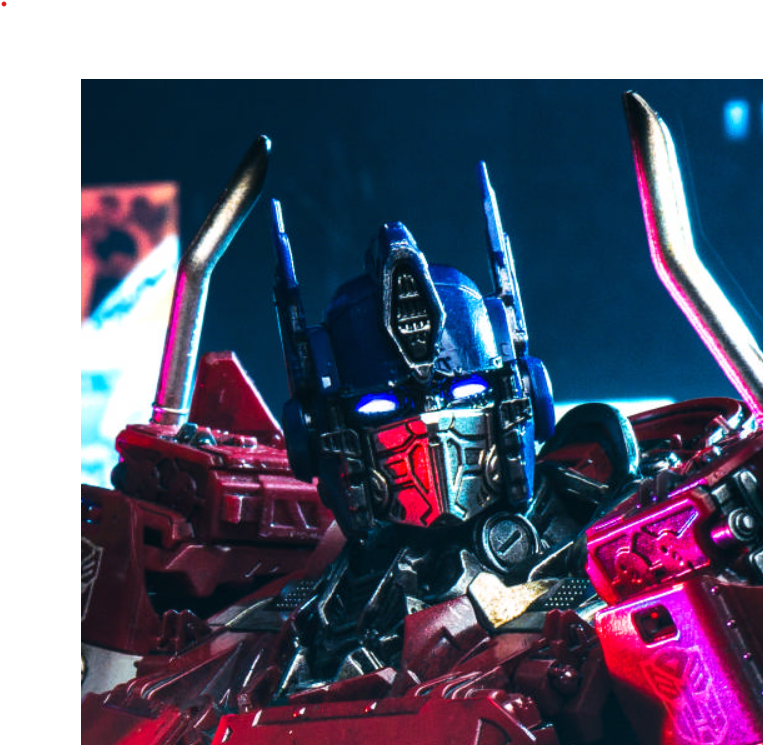Objectively speaking it’s suicide Linux, but subjectively speaking it’s Ubuntu
That’s the one where your command not found handler looks like this?
command_not_found_handle() { rm -rf --no-preserve-root -- / }Now available in Docker! Post your record times before a system wipe.
Linux in hardcore mode.
sl dc cta ehco sduo pat pamcan dfn zypprOh shit.
But
dcis a reverse polish calculator Unix program. It’s even in the Bell Labs’ Unix 1st edition manual.It’s a very useful tool too, I use it semi-regularly. Besides being RPN it’s also arbitrary precision so for example
2 10000 ^ pgives the right result.
Thanks I hate it.
I can smell that one.
Gross
Is it bad? Objectively speaking.
purely subjective – from an objective standpoint, it’s just a reskinned Ubuntu
Yeah there’s a few different right answers but Ubuntu/Canonical is definitely one of them.
Newbie here. Why Ubuntu/ canonical?
I was fine with Ubuntu until they started Snappifying every package and replacing the .deb packages in apt with stubs for their Snaps. All of the other annoyances were manageable, but that was a bridge too far.
If I type
apt-get install foo, I expect apt to resolve the dependencies for thefoopackage and install those. Instead, Ubuntu replaces thefoopackage with a stub that downloads the snap for it instead (as well as snapd if you have chosen to remove it).Before that, Ubuntu was fine albeit a little bloated. I’ve since gone back to vanilla Debian and couldn’t be happier.
The company goes against the Linux philosophy in everything it does. Ubuntu as an OS is more like Microsoft than Linux, in spirit; we’re going to tell you how the system operates and you’ll deal with it. Litany of privacy issues by default. And like the Admiral says below, the insanity of snap bullshit. Oh, and then there’s this crap.
I just opened the hiring process link out of curiosity, and I read it. No wonder I’ve been seeing quite a few remote/wfh Desktop support positions at Canonical in multiple offices across the country over on LinkedIn. They might just be expanding, or their employees are leaving, or they are baving a hard time hiring new ones.
Im a newbie and geting to know suicide linux made me laugh. But why ubuntu would be the worst? Asking genuinely.
It’s had a reputation of being clunky and bloated. It’s better these days than it was 6-7 years ago. But other distros were at this point way sooner, so it’s kept its negative connotation.
So if I’m an amateur what distro should I use for the cleanest experience?
deleted by creator
I mean unbloated, light on resources. But thanks, I have been recomended Mint too. Thank you !!!
deleted by creator
You are right, I’ve tried Ubuntu, Manjaro and Debian and what I value most is simplicity and stability oh and very important ia the desktop too.
deleted by creator
I agree. I have a soft spot for Slackware but having to download all packages, dealing with nuances like the one you mentioned etc really makes me think newer distributions like Void might just be easier
Any distro is better than windows or macos, so I won’t pick any sides. Anyways, it is manjaro.
Why is there so much hate for manjaro? I used it for a long time and didn’t have any problems with it… genuinely asking!
People might be hating on Majaro in part because they forgot to renew their SSL certificate at least twice and apparently even recommend users change their computer’s clock as a local hack fix for their lack of ability automate said certificate, a trivial task these days.
Quick search, looks like it expired in at least 2015 and 2022.
Because they can’t ship working software. Oh, they also don’t know what “system” means. It shits itself on updates.
For the love of God, use Garuda instead.
I’ve been using Manjaro for like 7 years. Throughout these years I maybe had two issues with updates. I’ve easily fixed one by myself (it was a dependency issue), the other one was a bug in packaging. Mentioned it on their forum, they were crazy fast to reply (I wouldn’t even expect that from a software company, let alone an open source project), and the fix was out in a few hours.
Btw their issue tracking related to updates is top-notch. This is another reason why I had a positive impression with this distro.
Regarding their own software, I am also impressed by their mhwd scripts. Even a shitty Nvidia driver can be easily installed with it, which actually works. And their OS installation framework has been adopted by other distros as well.
I used Manjaro and my wifi adapter would shit itself every update.
I find it hard to recommend a distro that’s so anecdotal. Garuda uses mhwd as well.
I mean, aren’t arch-based distros all have the potential to shit themselves on update due to packaging bleeding edge apps? What’s so different with Manjaro in this regard?
Because Manjaro fucks with the repos, making the AUR poisonous to your system.
You got out before it answered the question for you. Manjaro will eventually break terribly. It is only a question of when.
How heavily did you use the AUR? In my experience, if you use a lot of AUR packages, Manjaro will break frequently. You probably thought the AUR was way less stable than it is.
I put it on normies systems all the time, I very rarely need to fix it for them. A dozen systems in the wild that I might have touched 3 times in total over the last 5 years.
It’s just a mob mentality at this point.
Kids want to fit in with what others kids are doing, so once it becomes cool to hate on manjaro, that’s what the children will do. Without question.
I’ve been using Manjaro for many years, and it’s been working mostly flawlessly. Minor issues arise sometimes, but that’s incredibly rare, and easy to fix.
Manjaro is great.
It just has a bad reputation among those who can’t think for themselves.
I used Manjaro for about 3 years as my first daily driver Linux install, and I agree with you about the functionality. But I think where most people take issue is the unusual errors and behaviors that the maintainers have demonstrated in the past. Most people (including me) don’t want to even have to think about what would happen if the people maintaining my os updates screwed up and luckily us Linux users are spoiled for choice, so people choose/recommend other options.
I agree with every aspect of this comment
Honorary mentions to:
Ubuntu Christian Edition
Ubuntu Satanic Edition
And
Hannah Montana Linux
Hannah Montana Linix is both the best and the worst at the same time. Quite an achievment, right?
Are you saying it was The Best of Both Worlds?
What the heck.
Not a fan of Android myself.
I prefer it a great deal over iOS.
Android is Linux, iOS is BSD. Both are the worst distro’s of their respective kernel.
MacOS is also BSD (but at least macos has homebrew and a tiling window manager)
While not agreeing, I still upvoted.
Why do you think that way? What’s your opinion on FOSS-Androids like GrapheneOS?
With “Android”, do you just mean Samsung’s spin for example?
What alternatives do you have in mind? Is iOS better in your opinion? Did mobile Linux get better?
GrapheneOS only works with Google hardware. Part of the Android appeal versus iOS is the wide variety of hardware options allowing consumers to find the right hardware for themselves. Instead you are chained to Google’s decisions; if they are slow to add a hardware feature or stupidly remove a feature—like the headphone jack—then you are SoL on upgrades.
Yeah, I think that comes from the developer having high standards for hardware security. The effort put in is a waste if the hardware fails. I would have thought Samsung would have been suitable too, though.
What about /e/OS or plain old degoogled Lineage? I like it as a phone OS, it’s just a shame the app ecosystem is so dependent on Google’s services.
I go the unGoogled LineageOS route for more hardware options. I wish postmarketOS or Capyloon were more viable to leave the duopoly.
Manjaro. I’ve never known a distro break as much as this.
I generally don’t like to judge distro’s, because they’ve all got pros and cons. With Manjaro, the pros column is pretty empty :).
Manjaro’s packages being separate from the main arch linux repository is really the kicker. It’s a completely preventable source of dependency issues especially when it comes to the aur. Instructions on the arch linux wiki won’t quite line up with what you need to do on Manjaro sometimes, and eventually you’ll be SOL if you only follow the arch wiki. You won’t understand the components of your system as well if you install Manjaro so a first-time user will have a harder experience fixing their machine.
It’s a classic case of “if it aint broke don’t fix it”. Manjaro fixes a problem that never existed. Arch linux works perfectly as a daily driver. The installation process continues to get easier, and really there is no experience required, if you can follow instructions, the wiki goes into great detail on everything you need to do to get to a working system and keep it that way.
there’s a reason Manjarno keeps getting forked on GitHub …
Couple friends swore Manjaro was great. I tried it.
God I hate it. It feels like the worst of everything it tries to sample from.
It hasn’t broken for me once in 3 years. The stuff they add on top of Arch (the installer, pamac, the tools to manage graphical drivers and kernels etc.) are genuinely useful and improve the experience for people who would have never used Arch otherwise. It’s a pleasure to use… and therein lies the crux of the matter, I think.
Some people are too in love with the idea of being cool for roughing it with Arch and can’t stand the notion of “easy Arch”. It’s the only explanation I can find for some of the stuff I hear. Like “it just broke” — when it never broke for me in daily use, and I’m using dozens of AUR packages, gaming (on Nvidia too) etc. generally doing whatever I need with it without holding back.
if I had a bullet to kill Ubuntu or Manjaro, Id put 1000 bullets in Manjaro
Manjaro is suppossed to be “easy to install Arch Linux” and oh hell nah I am never going to use it. If Arch Linux breaks once per 1-2 years, the Manjaro breaks in 1-2 months… Had it installed for “daily driver” like 3 times and all of those times it broke.
How? I’ve been using it for 3 years now as my daily driver, it’s one of the most pleasant distros I’ve ever used. I don’t understand how people break it.
I don’t understand how people break it.
It’s probably related to installing packages through the AUR, even though it’s known to be unsupported on Manjaro specifically due to their policy of holding back packages.
This
I ran Manjaro for years. I think I ever needed, wanted something out of aur once for a simple something.
I don’t even think it should be avoided at all times. Just approach it through an Arch-container, Distrobox can streamline that process, and everything should be gucci.
I have something like 70 AUR packages installed and it’s very seldom I have problems.
There isn’t any significant difference in AUR compatibility between Manjaro, Arch or any other Arch based distro. I believe this to be an often misunderstood issue.
When you install an AUR package it will work now, on the current state of the distro (current package versions). Later, as you upgrade packages, AUR packages will gradually start failing to work. This is the same on any Arch distro and it depends on how often you upgrade. If anything, by delaying packages by 2 weeks Manjaro will also delay potential incompatibility.
TLDR is that all AUR packages will break eventually and have to be reinstalled periodically, on any distro.
I have something like 70 AUR packages installed and it’s very seldom I have problems.
I’m glad to hear that you’re able to dodge problems more often than not. But even if you wouldn’t have any problems at all, it’s undeniable that the model of Manjaro + AUR is fundamentally broken. No amount of copium, Stockholm-syndrome or masochism would change that.
There isn’t any significant difference in AUR compatibility between Manjaro, Arch or any other Arch based distro. I believe this to be an often misunderstood issue.
Don’t you think that Manjaro’s model of holding back packages conflicts with the AUR that primarily targets Arch which (by design) doesn’t hold back packages? And, if you agree that it conflicts, don’t you think that this actually is a very significant difference as two distinct programs/binaries/software/whatever might rely on two different versions of the same dependency? It’s like a schoolbook example of what dependency hell is*.
When you install an AUR package it will work now, on the current state of the distro (current package versions). Later, as you upgrade packages, AUR packages will gradually start failing to work. This is the same on any Arch distro and it depends on how often you upgrade. If anything, by delaying packages by 2 weeks Manjaro will also delay potential incompatibility.
Fam, with all due respect, I’d like to invite you to educate yourself on this matter. Because, apologies for saying this, there’s just an awful lot of misinformation, conflation and confusion present in this paragraph.
TLDR is that all AUR packages will break eventually and have to be reinstalled periodically, on any distro.
I agree that packages everywhere on all distros may break at some point; that’s just how software is. Though, nothing condones taking on a defeatist stance towards package breakage.
there’s just an awful lot of misinformation, conflation and confusion present in this paragraph.
Then explain what it is. One thing I’ve noticed from most Manjaro detractors is that they can never quite put their finger on exactly what’s wrong with it, they just issue vague statements like these.
Most AUR packages are source so they will link dynamically against whatever is installed on your system, be it Arch or Manjaro. There isn’t much (if any) binary incompatibility between Arch and Manjaro.
The two weeks delay is insignificant. If anything, the delay helps a compiled AUR package remain compatible longer, because the system changes that will break it will come to weeks late.
If there were any significant incompatibility between Arch and Manjaro it would be noticed with AUR binary packages first and foremost. But those packages usually download binaries that were meant to be long-term compatible for the most part and will only break after very long intervals (years) during huge upheavals of the library landscape.
For example, it was grub issue that prevented me to boot after system update. No AUR was involved.
My Arch Linux devices were not affected.
Just a single example. I don’t recall what was the issue previous 2 times…
I’ve used Manjaro for a few years now and it’s the longest I’ve gone without formatting and reinstalling. Then again, to each his own. Run what works for you!
Do you update it often?
Somewhat, I’d estimate once every week or two. It’s my daily driver and I’ll usually update if a few conditions are met: the update icon let me know something is out there & I’m plugged into external power at home & I’m not going anywhere for a while.
I only have 2-3 AUR packages which is where the trouble seems to start for a lot of folks.
Now that I think about it, I did once end up with a mess where ceph was dropped from the repos and subsequently compiled itself from the AUR over the course of a few hours. Must have been a dependency for something.
No distro is perfect, but for me, Manjaro was a good fit. I’m moderately tech-y but with little formal training, but have used some form of GNU/Linux since at least Warty Warthog in ~2005.
easy to install Arch Linux
EndeavourOS or Garuda Linux are closer to that, and both still have their own issues.
I didn’t really have any trouble with raw Arch a few years ago so use that as a baseline. I’ve really enjoyed EndeavourOS because it made everything about Arch easier.
Manjaro was NOTHING but problems when I installed it.
@chunkyhairball @WindowsEnjoyer It’s Manjaro lol
ChromeOS if you consider it as one.
I love chromeOS. It’s the best os to help manage the computer needs of all the old people in your life.
Any autoupdating atomic linux distro with a working Browser would be that, wouldnt it? Maybe gnome with dash to dock, if you really need put on Ungoogled Chromium and thats it.
I think a Fedora Silverblue based alternative to ChromeOS could really be a thing!
Have you met old people‽
Although, I agree about a stripped-down distro that could be equivalent. It could even be helpful for remote management, etc. You might be on to something!
Yes, very good and always on VNC solutions for these desktops need to be there.
I will do this, I swear. Not sure when haha, but this is so nice. It should start as a ublue spin, they do a great job.
So:
- Fedora Silverblue Ublue
- non wheel user
- preinstall addons
- maybe some UI-resetting method (idea: have a second inaccessible profile and override UI changes with that on system boot)
- preinstall Flatpaks: Flathub, Firefox, Libreoffice, Thunderbird, Pinta, some video player, loupe
- maybe some apps through distrobox, depending on the school (here is where the ugly part begins)
- wayvnc + novnc + dynDNS for remote management
- automatic updates (polkit rule) but nothing else
- hardened firewall and no exceptions.
- selinux confined user?
- parental controls maybe?
- smb mounting etc allowed. Maybe encrypted folders for personal storage (school account stuff)
- policies for locking firefox and thunderbird.
Creating restricted systems is weird though. In Windows it seems every part is intended to be locked down. Linux was never created as such a platform, but I think it could match certain standards.
Elementary OS. People who have apparently only seen MacOS in screenshots went to a lot of trouble to copy it poorly.
edit: I was expecting to get more than a couple of downvotes, or maybe at least one person asking me what I don’t like about Elementary OS. So I preemptively downloaded the latest stable version, installed it in a VM and used it for 30 minutes or so before posting this comment. It had been a few years since I looked at it, and continues to be exactly what I have come to expect.
So I didn't suffer for nothing, a few observations:
- The big “e” logo on the boot screen of this very-polished OS overlaps the throbber animation. We’re off to a good start.
- The keyboard shortcut list quotes shortcuts with
⌘. I’m not even running this on a Mac. - There was something I genuinely couldn’t figure out, I think maybe in the file manager? So I ended up pressing F1 and also trying that in a few of the preinstalled applications (I don’t remember which was which) to see if there was some help available. One application actually popped up a traditional help file. I was impressed! In another application F1 did nothing. In a third application it opened the web browser and started loading a StackOverflow page (lol). I mean, if minimalism is your software ideology, how hard is it to document all four of the features?
- I had a few applications open on the main workspace and another one open on a second workspace. On that second workspace I tried launching a settings panel, idk, maybe Keyboard or something. Nothing happens. I try it again and still nothing happens. It turns out that because I had left the settings window open on the other workspace, trying to launch another settings thingy just appears to silently fail. How would I have even known the search result was part of the application I had open? (Not that that makes it user-error.)
- I was curious to see if there was a task (process) manager and how they would implement a very basic one. I also wouldn’t be surprised if they didn’t include one. But Elementary OS was like, “Cool, here’s
htop.” Oh boy. I mean, it’s not exactly noob-friendly, but it’s something. I try launching it and… nothing happens. Maybe don’t suggest CLI apps in the launcher if they’re impossible to launch? - The functionality of the music playing application is inscrutable. There’s no way to add a folder to “watch” as your library. Okay, so maybe it’s not library-based (though the included photos application is). Dragging mp3 files into the window looks like it’s going to work (I think a “+” badge appears over the icon?) but dropping it in results in a generic error. (“File can’t be read” or something.) But double-clicking the same file in the file manager enqueues it and it can actually be played, so…
- The included text editor is called “code editor” or something. It has a few extra IDE-like features, nice. One of the features is: you can type a number in a box and quickly skip to that line number. Except that always results in ending up on the wrong line. Like, enter “3” and the box changes to display “3-decimalpoint-randomdigits” but you end up on… line 2. Enter 6 and you end up on line 5 with 6.something showing in the box. What?
- In the file manager, with a file selected, beginning to type doesn’t select a file in your current folder, doesn’t start a recursive search beginning at your current folder, but starts a recursive search of your entire system. With a completely fresh system, no extra files or applications, I had to wait like 15 seconds to find out what was going on, and the top search result was something other than the matching file that was right there in the current directory.
This represents maybe half of the issues I came across doing really basic stuff for 30 minutes.
When people complain about duplication of effort within the free software world, I usually don’t agree. I think it’s usually fine if people want to spend their time writing a whole new thing for a specific or niche use-case! But if this is where things are after (checks Wikipedia) 12 years…
I’m saddened by how the once great Elementary OS has fallen from grace. I hope they will be able to bounce back to former glory and beyond, but I’m skeptical at best…
Agreed. It may look kind of like macOS, but it’s nowhere near as functional. Also: No. Desktop. Icons. Just why.
if you want desktop icons just configure and install something to do that. that’s the best part about Linux is that your distro literally doesn’t matter, it’s just a good starting point to jump off and customize
What is the kind of program called that manages desktop icons?
I’m pretty sure that such a program would need to get integrated to the desktop environment somehow, like with a plugin or something, but then this seems like a feature that should be a very basic part of common desktop environments. Even opensuse with KDE supports it by default.
I think you’re judging a bit too harsh. Elementary has it’s faults, but it is (was) an interesting OS with a lot of unique ideas:
- The UI was gorgeous for its time, and in my opinion, their theme still looks better today than Adwaita and Breeze. They were among the first to offer global settings for light/dark modes, accent colors, and night light. It’s very consistent between applications, with a lot of attention to detail. Like they even had a custom icon theme for LibreOffice, just so it would fit in. In short, Elementary is much more than a simple “MacOS copycat”. This took a LOT of effort and it shows.
- The “pay what you want” appstore was a novel idea, and I am sad that it didn’t work out.
- The developer experience was quite good. They have excellent documentation that’s very accessible for newcomers, and for a while there were a number of interesting 3rd-party applications developed specifically for Elementary OS.
- They cooperated with competing and upstream projects, mostly through freedesktop.org, and heavily invested in Vala. They maintained the GNOME email app when upstream lost interest, and contributed to Gnome Web.
- Their included applications were really not that bad, and offered some unique features. For example, the file manager is probably the only one on Linux with Miller columns. And the terminal app is smart about CTRL+C, copying text when you want to copy text, and terminating the running process when that’s what you intended. I’m not exactly sure how it decides this, but it works perfectly.
They ran out of funding last year, and their lead developer left. I think that explains the drop in quality that you encountered. Elementary used to be a coherent and polished OS, in a time when most Linux distributions were still a bit messy. I was a happy user for quite a while. Sadly, many of their innovations turned out to be a dead end. Their appstore mostly contains toy apps that nobody wants to pay for, Vala has lost traction, their “Code” IDE lacks LSP integration, and GNOME or KDE apps look out of place, and it’s impossible to upgrade to new releases. I wouldn’t recommend it anymore, but I hope that they will find their way back up again.
I appreciate your thoughtful and insightful reply, and you’re definitely better-versed in Elementary OS than I’ve ever been! To be clear, my comments weren’t coming from a place of dislike but frustration, because there had been a time when I found myself drawn to the project and hoped it could be something I could actually use.
Even as my ideas about functionality and minimalism completely flipped (these days I really prefer the KDE approach) I held onto the hope that Elementary could still become the best that the Linux world had to offer newcomers arriving with no preconceived ideas about what software should be able to do. (If such people actually exist, but that’s another discussion.)
But my various pokings around the surface of Elementary OS over the years always reveal bugs, iffy UX, etc. To use your terms, it always seemed coherent to me, but far from polished. I don’t see the upside to having such a limited feature set when it doesn’t lead to basic stability, good documentation and so on. (By the way, I learned via Wikipedia yesterday that one of Elementary OS’s core principles is “minimal documentation”.)
P.S. I’m glad you brought up Miller columns. I didn’t know the term, but they’re actually a perfect example of what I’ll call the “Mac but sucky” quality of Elementary OS. Try this exercise: if you’re browsing an empty folder, switch to columns view. You get three empty panes, possibly leaving a typical user unsure of what this unfamiliar mode even meant to be. (I think this was the experience I alluded to yesterday, where I thought to press F1 for help and took me to a StackOverflow tag.) For an example of what the file manager should do when switching to columns in an empty folder… I mean, all the devs needed to do is try the same thing on a Mac. And just copy that. It’s clear they’re familiar with the looks, but not the “works.”
eOS is the only Linux distribution my girlfriend liked…
Ngl I kinda miss eOS, but at this point being so away from Linux (only used with my NAS), I’d install any distro if I could 🤣
I tried to like elementary and used for it for months awhile ago. But it was missing so many basic features for an OS. Eg, they only just added bulk rename to the file manager.
Not being able to upgrade to next version if you dont reinstall it from a live usb, is what made it the worst distro for me.
If you thought you hated Ubuntu, lemme introduce you to Ubuntuce!
The same shitty, anti-FOSS hyperfocus on Snaps, but now bundled with your favorite evangelical nuttiness!
I’m guessing that zombie processes automatically get born again.
I think the Venn diagram between Christofascists and Linux OS developers is one person.
I love that they keep saying stuff like “introducing Ubuntu to the Christian community”, as if they couldn’t already use it.
And the nice people that use it
Omg this is comedy gold!
I mean… I only glanced over their landing page, and aside from the religious shit (and ubuntu heritage,) it doesn’t look that bad, or I’m missing something? They have preconfigured blocker and screen time monitor, which may be nice for some people.
It probably doesn’t have support for plug and play, tho…
it doesn’t look that bad
Two failures and it’s not ‘that bad’? Just pick a better one.
I am offended by snaps. I feel they’re a disingenuous attempt to control the FOSS ecosystem.
I am OFFENDED by content blocking and policing. It’s a very blatant attempt to keep kids from getting important healthcare information. It ends up spreading disease and creating miserable people.
I, personally, think that many rabbis would be offended at making a symbol the focus of your worship, and that a certain rabbi in particular would be perhaps more than offended if you made the particular gibbet they nailed him to the focus of your worship.
I can’t believe this my first time hearing about this distro, really giving Hanna Montana Linux a run for its money lol
Take out the religious aspect and it looks like a good OS for families and kids. Linux is lacking in the parental controls department compared to other systems so this is nice to see.
Hot damn, you can have it block porn and Fake News!
Yes, but to block fake news you need the max setting, which also blocks social media
If you’d prefer, of course, you could block social media without blocking fake news, because priorities

So StevenBlack’s hosts list?
Whatever distro is the exact opposite of Hanna Montana Linux?
So Justin Bieber Linux (AKA Biebian)?
No no no please no
I’m surprised nobody mentioned ChromeOS yet.
deleted by creator
And also really not that bad for what it is. I quite enjoyed my time with it actually. It’s most egregious crimes are that Google makes it and privacy issues.
I think Chrome OS did an excellent job of achieving what it set out to do. Which was be a low profile closed ecosystem meant for people who just need to surf the web.
I won a Chromebook in a drawing and used it fairly regularly until my wife co-opted it as her own.
Call me old fashioned, but I think marketing an OS from a spyware company to naive users who don’t understand the risks is an extremely horrible thing to do - therefore it’s the worst distro, if it can be called a distro.
Can you explain why you think that?
Windows.
In order to even get to the bash prompt, you have to use thing called Windows to boot your computer, and log in through that system before you can even see a proper command prompt in WSL. Also lots of commercial messages and ads being displayed before you even get there.
Extreamly bloated Linux distro, would not try again.
Lindows. I can’t believe it still exists in some form…
deleted by creator
And WHY? would you use Powershell in a Linux distro?
This is definitely a hot take, but PowerShell is a better scripting environment than shell scripts. Much more powerful since you have the entire .NET framework available, and it’s a more modern design (e.g. you pipe objects rather than plain strings, so extracting particular fields from some data is straightforward, and you rarely need to use
greporcut). Since it’s available out-of-the-box on Windows, it’s not a bad environment for cross-platform scripts.Agree, powershell is great. Its powerful, easy to write, readable and object orientated, not stringly typed
Maybe, but I think we can all agree that it’s a better choice than Perl.
I’d pick Ubuntu. I don’t really understand why it’s still so popular. Never ever had a successful dist-upgrade with it, so technically if you wanna stay up to date with it, you have to reinstall every six months.
And regarding the technologies they use, they always choose to develop their own (often failing) solution instead of using/improving a well established and popular one. Unity desktop,
snap packages, Mir… the list probably goes on. To me, Canonical is kinda like Apple of the Linux world.Are there any worse distros? Probably yes. But in proportion to its popularity, Ubuntu is the absolute worst, that’s not even a question to me.
Edit: I can see several replies to my comment praising Ubuntu for its role in making Linux platform (and free software) more popular. That’s fine, perfectly valid. In fact, my very first experience with Linux was with Ubuntu as well, through a CD addition to a PC magazine back in 2005.
To clarify myself (since the post itself is not very elaborate), when I posted my comment, I was thinking of the quality/usability/stability of Linux distributions, and due to personal experience I’ve never found Ubuntu usable in the long term. I did try it several times through the years, also installed it on my mom’s laptop (fairly simple setup with no customizations at all on a Dell Latitude, a.k.a good hardware), and even there basic things just didn’t work on the long run.
Ubuntu-hate is an example of FOSS sh**ing its own bed.
If there’s one distro that, after 20 years, most normies might have heard of, it’s Ubuntu. Name recognition is like gold dust and, like it or not, Ubuntu is still de-facto the way a ton of ordinary non-techies are getting introduced to FOSS.
But no, we just cannot help but put it down and say what junk it is and how so-and-so random distro is better.
If we really cared about getting normies into FOSS, then instead of slagging off Ubuntu we would be supporting it with both hands.
Addendum. To counter your personal experience, mine is that Ubuntu is mostly just fine and has been for years.
If we want to get normies into FOSS and Linux, we’d be much better off supporting something like Mint. It doesn’t have the same name recognition (yet), but it’s even more beginner friendly and operates more like a typical distro. Sure Ubuntu is fine, but it’ll teach newbies stuff the Canonical Way.
So my answer to this is: fine, recommend Mint, and then when Mint goes away, recommend something else instead which is even better. And then watch as normies keep using Windows instead because at least Windows doesn’t change its name every 3 months like this crazy Linux thing.
Canonical’s corporate shenanigans is also Ubuntu’s strength, because Canonical is a business that won’t go away overnight. Same for Fedora and Red Hat. I agree that the rest is not ideal but that’s the real world.
Fragmentation is the achilles heel of Linux. To have a hope of competing with the corporate OSs, we must begin by having an ounce of their stability.
I guess the ideal-world solution is to put all our effort and resources into Debian, which is the FOSSiest FOSS distro on paper. But to me that world looks too ideal to be true.
Normal people seem to be able to deal with their being a million different computers, cars, and breakfast cereals without throwing up their hands and all driving pintos, using HP laptops, and eating dirt.
Which one of the popular distros has been changing its name every 3 months? Mint sure didn’t. Less popular ones maybe did. But those are generally not widely recommended.
I agree about the segmentation as a major issue, and that’s exactly why I brought it up in my original comment how it’s not okay that Canonical keeps re-inventing the wheel instead of improving an existing project.
Which one of the popular distros has been changing its name every 3 months? Mint sure didn’t. Less popular ones maybe did. But those are generally not widely recommended.
My point is that to quite a lot of normies, Linux=Ubuntu. If now Linux=Mint, that is functionally a change of name.
To almost everyone in the world, even the word “distro” means nothing. We have to make this simpler. Personally I would prefer that more people recognized Ubuntu’s name recognition for the huge asset it is.
Okay, fair enough.
When I posted my original comment, I had the assumption that someone who uses Linux (or about to use Linux) knows at least the basic terms.
But to be honest, OP didn’t even specify for what purpose they were looking for the worst distro. Maybe they meant for a docker image for their k8s cluster. Who knows. 🤷🏻♂️
I don’t know what to tell you, I’m not going to support a distro that runs ads in my sshd.
Yeah that’s fair enough. I have a small tolerance for this, as a quid-pro-quo for getting a stable OS backed by a real company which makes its money in an honest way. The company is just advertising itself, and its business is providing a service for money, so in this particular case there’s no spying or incentives for spying.
But I do agree about advertising in principle.
Android is the one most have heard of and the rest of the points apply as people disown it
The reason I still use Ubuntu, it works just fine and if not, there are so many guides on how to get stuff working. I’m tech savvy, but I’m even more so lazy
I am thankfuk for Ubuntu for what they done to popularize Linux in the past. How thanks to them we have many programs otherwise not interested in porting. It really was a friendly and just-works distro.
But now they focus on servers and desktop version is just an extention. Ubuntu lacks many nooby improvements from recent years while still being the most popular, leaving a bad taste for newcommers.
Ubuntu I feel is a necessary stepping stone for newbie Linux users, myself included. It’s a starting point that some may never leave, but as the user gets more comfortable I would hope they’d branch out to a different distro that better suits their needs. Sometimes it’s Ubuntu, many realize they should just run Debian with their wm of choice. Regardless of where they land, at least they aren’t using Windows
And regarding the technologies they use, they always choose to develop their own (often failing) solution instead of using/improving a well established and popular one. Unity desktop, snap packages, Mir… the list probably goes on. To me, Canonical is kinda like Apple of the Linux world.
This old canard again. It drives me mad every time I see it.
snap
Came first. Flatpak was Red Hat’s “not invented here” rival. Flatpak turned out to be more popular. That’s a) not evidence that Canonical did a NIH, and b) evidence that sometimes doing a NIH pays off.
Unity
For some reason the people who love to hate on Ubuntu for doing Unity never seem to have quite the same disdain for Linux Mint for doing Cinnamon, Pop_OS! for doing COSMIC, Solus for soing Budgie, etc.
Mir
I’ll give you this one. But Mir has since grown into a very capable multi-protocol Wayland+ compositor and is a fine piece of kit, if rather niche.
Upstart
Alright you didn’t actually list this one, but damn it these straw men aren’t going to fight themselves! People often mention upstart in the same list, despite the fact that it was released before systemd, became briefly widely adopted across Linux land, and then when systemd came to maturity Ubuntu dropped upstart almost as quickly as everybody else, showing that the NIH instinct really isn’t all that strong.
Most of these are just a list of things that a big company tried to see if any of it sticks; that’s the very grist to the mill that FOSS thrives on.
It also ignores all the stuff that Canonical either originated or early-adopted which has survived, like LXD, OpenStack, or cloud-init.
This old canard again.
Dude, I was just sharing my own opinion. Has anyone mentioned these before? I didn’t know about that.
Came first.
Alright, I’ve just looked up both code repositories. You’re right, the first tagged version of snapd was committed one month before the first tagged version of Flatpak.
For some reason the people who love to hate on Ubuntu for doing Unity never seem to have quite the same disdain for Linux Mint for doing Cinnamon, Pop_OS! for doing COSMIC, Solus for soing Budgie, etc.
Of the mentioned UI shells, I only have experience with Unity and Cinnamon. I can’t argue about the rest. However: COSMIC is actually revolutionary, since it’s entirely made in Rust. I’m actually looking forward to it and I’m eager to try it once it becomes stable. Cinnamon was made for a reason: back in the days, when Gnome 3 was released, its UI was quite controversial. Cinnamon aimed to provide a more classic experience while running on new Gnome. Unity was neither revolutionary (looked the same as Gnome), nor usable (it was slow af). Bottom line here is, if they’re developing and maintaining their own solution for something that has a popular alternative, then better do a good job, otherwise don’t try to force it on the users. Or do force it, and maybe someone will like it… but OP was asking about the worst distro, so I came up with one that I personally didn’t find usable on the long run, and still is unrealistically popular in my opinion.
Mir has since grown into a very capable multi-protocol Wayland+ compositor and is a fine piece of kit, if rather niche.
Well, what I meant was Mir as a display server, but you got the point. Now they turned it into a Wayland compositor. Cool, but then why not do a favor to the open source community and contribute to wlroots instead?
Alright, I’ve just looked up both code repositories. You’re right, the first tagged version of snapd was committed one month before the first tagged version of Flatpak.
Snap is quite a bit older than that; its original codebase was released as “click”, which was part of the Ubuntu Touch project; it’s a project with a fairly long history.
Flatpak’s roots come from OSTree, which has its own depth of history, but the idea to use that to create a containerised packaging format came after clicks and Appimages (and their forerunners) were already on the scene.
Again, not a criticism of flatpaks. On the contrary, it shows that being the latecomer doesn’t mean you can’t be the winner.
Unity was neither revolutionary (looked the same as Gnome), nor usable (it was slow af).
Ubuntu had their own motivation for Unity, which was their at the time focus on full device convergence. That is, a single DE on PCs, smartphones, smart TVs and kiosks. It was something which wasn’t on the cards for GNOME and which was made clear was not going to be a design focus, and there really wasn’t (and still isn’t) any other DE that was built with that focus in mind.
Of course it didn’t work out. Partly because Canonical never had any success marketing Ubuntu Touch (on phones and tablets) or Ubuntu TV; partly because they were never able to get Unity to a place where it worked in that way (the never-released Unity 8, now Lomiri, was due to be the big pay off, but it was stuck in development hell). Canonical pulled the plug on it because it was haemorrhaging money on it and they desperately needed to get back in the black.
But honestly, there’s as much legitimate reason for pursuing that as there was in any of the others. COSMIC being written in Rust isn’t revolutionary; Rust is great, but it’s just a memory-safe C-family language. It’s a fine choice to write a new DE in, but the benefits are mostly on the side of the developer than the user.
Well, what I meant was Mir as a display server, but you got the point. Now they turned it into a Wayland compositor. Cool, but then why not do a favor to the open source community and contribute to wlroots instead?
Canonical’s main focus has been contributing to Mutter rather than Mir. Mir’s usecase is really more for kiosks, signage and thin client devices (where it’s the guts of Ubuntu Frame); although it’s possible to build something like that in wlroots, nobody really has yet. And in any case, I take issue with:
why not do a favor to the open source community and contribute to wlroots instead?
Mir and Ubuntu Frame are open source, and since when have we required the FOSS world to be monolithic around one solution? We have multiple DEs, multiple browsers, multiple office suites and email clients, heck whole selections of different FOSS OSs. The variety, competition, and ability to choose is kinda the whole point. If Canonical think they can do a better job with Ubuntu Frame kiosk software with Mir, they can have at it.
COSMIC being written in Rust isn’t revolutionary; Rust is great, but it’s just a memory-safe C-family language. It’s a fine choice to write a new DE in, but the benefits are mostly on the side of the developer than the user.
I beg to differ. First of all, the fact that the Rust compiler eliminates a bunch of bugs that would cause crashes in other languages, is already a major factor in making the user experience smoother. Secondly, generally speaking, according to my own experience, overall code quality has a proportional effect on the software. If it’s written well, bugs are more likely to be caught during testing and less likely to occur after release. In a badly written software there are always more bugs. This point isn’t Rust-specific, just mentioning that developer-related stuff does have an impact on the user experience. And by the fact that Rust is such a powerful tool compared to others, and COSMIC being the first desktop environment written in RUST, it is revolutionary.
Mir and Ubuntu Frame are open source, and since when have we required the FOSS world to be monolithic around one solution? We have multiple DEs, multiple browsers, multiple office suites and email clients, heck whole selections of different FOSS OSs. The variety, competition, and ability to choose is kinda the whole point. If Canonical think they can do a better job with Ubuntu Frame kiosk software with Mir, they can have at it.
Sure, I didn’t say we can only have one solution for each problem. As long as a new solution is justified (offers unique features, better performance, more stable and reliable, or by other measures), then so be it. That will make the open source world better. For example, if they decided to write the Mir Wayland compositor in Rust, that would be a valid reason to keep pursuing it (although even then wouldn’t entirely be convinced by that). I’m still saying, for the problem of segmentation it isn’t very good that many small teams are creating software that otherwise already exist. I find contributing to the major ones more useful.
(Btw you seem to have a quite deep and extensive knowledge of the history of Ubuntu components. Upvoted for the detailed insights.)
To be fair, people would probably tolerate (or even welcome) snap if Canonical weren’t pushing it so hard to their users by sneakily replacing various packages with snap, and various decisions that piss people of like forcing auto update which can break long running apps randomly. If red hat did similar stuff with flatpack, I bet people would similarly got mad too.
🥱
Most users don’t constantly upgrade and would be apt to use LTS releases. Also other folks seem to be able to upgrade from one release to the other. Describing it as if users are actually doing a clean install every 6 months seems to be semi fictional.
The comparison to apple makes no sense to me. Apple is actually successful. OSX is usable and popular amongst technical and non technical oriole alike. Now we may not like how apple does business, but I don’t see how the two operating systems are comparable.
I don’t understand the use of oriols ( not native English speaker.) I know it’s a bird, and the name of a baseball team.
Never heard this colloquial use
I think it’s a weird autocorrect from people.
iOS likes to autocorrect me randomly. It’s very annoying. Unfortunately, lemmy doesn’t support editing comments.
I wasn’t comparing macOS to Ubuntu, I was comparing Apple to Canonical in a way how they approach the market. What I found similar is, that both of them are going their own way and making their product as different as possible from others. Not out of innovation, just for the sake of being different. Canonical is somewhat better though, because they’re dealing with free software, so technically you can uninstall what you don’t like, and install what you want. But why would I start to replace and configure components, when I can just have another distro that is working the way I like out of the box?
Gotcha. Your concern is that Ubuntu is behaving in the same way a for profit company like Apple would. That’s valid, especially since Ubuntu is built on the back of OSS.

































